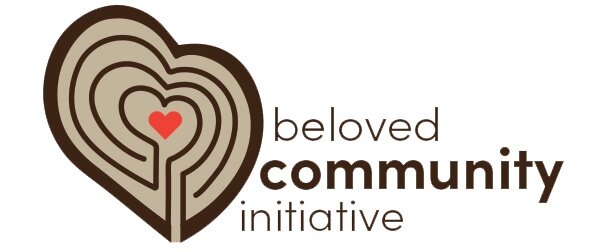Weekly in-person and virtual resumes in Lent - in a new place!
Beginning on March 5th at 5:00pm, we hope you will join us weekly in person or online for Holy Eucharist this Lent.
In-person worship: Inside Trinity Episcopal Church, 320 East College St., Iowa City. Parking available on-street and in the Chauncey ramp. Wheelchair accessible. Come in the front door and follow the signs for JustChurch! We look forward to welcoming you! Masks are still strongly encouraged indoors as the pandemic numbers decline.
Email us for the Zoom link to connect online.
About the Art and Artist
First Fruits
by Rev. Lauren Wright Pittman
Inspired by Deuteronomy 26:1-11
Digital painting
This text urges the harvester to ground themselves in ancestral and divine identity. This requires a primal knowledge of the answers to the questions, “Who are you?” and “Whose are you?” When the harvester brings the first fruits to the dwelling place of God, they are asked to offer a response to God, in which the harvester recounts the Exodus narrative. This narrative defines the harvester and gives understanding, resonance, and purpose to their offering before God.
Notice how the response is in first person plural: “When the Egyptians treated us harshly and afflicted us, by imposing hard labor on us, we cried to the Lord… and the Lord heard our voice and saw our affliction, our toil, and our oppression. The Lord brought us out of Egypt with a mighty hand and an outstretched arm, with a terrifying display of power… and he brought us into this place and gave us this land, a land flowing with milk and honey.” (Deut. 26:6-9, NRSV) I imagine this recitation roots the harvester in their identity as an Exodus person—a wandering alien, oppressed and afflicted, who was heard, seen, and rescued by God.
Regardless of whether or not the harvester directly experienced the events of their pronouncement before God, this narrative is where their identity is found and it changes how they live. Echoes of this narrative live in the harvester. This narrative affirms the truth that the harvester was once an alien, and whatever they have been given and all that they are belong to God. Therefore, all of the bounty—the sumptuous, nurturing, first fruits of the ground are to be shared with the aliens who reside among them. What would it look like for you to ground yourself in ancestral and divine identity? How would it change how you live? Who are you? Whose are you?
—Rev. Lauren Wright Pittman
Rev. Lauren Wright Pittman
Lauren (she/her) is an artist, graphic designer, and theologian. She uses paint, metallic inks, and Apple pencil to image the layered complexity she experiences in scripture texts. She also helps faith communities share their vibrant stories through branding & design services.
Art courtesy of A Sanctified Art: sanctifiedart.org



